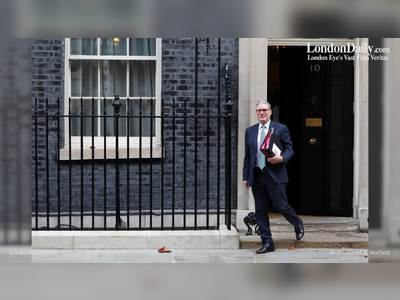UK Chancellor Reeves Eyes High-Value Home Levy in Budget to Raise Tens of Billions
New surcharge on premium properties in council tax bands F–H expected ahead of November 26 budget
The UK government is reportedly planning a levy targeting high-value homes as part of its forthcoming autumn budget, with Chancellor Rachel Reeves believed to be seeking tens of billions of pounds in additional revenue ahead of the fiscal announcement.
According to a report from The Telegraph, the measure would affect hundreds of thousands of properties, particularly in London and the South East.
Under the proposed design, about 2.4 million owner-occupied homes classified in council tax bands F, G and H would be re-valued over time, and a separate surcharge introduced for roughly 300,000 of the most valuable properties.
The surcharge would sit on top of existing council tax bills and be collected via the familiar system, making use of the infrastructure already in place.
Officials emphasise that no decision has yet been announced, with Treasury spokespeople declining to comment on speculation ahead of the budget event.
The development follows earlier indications that the government has abandoned a planned income-tax rise, opting instead to seek revenue from alternative sources amid improved fiscal forecasts and rising public spending pressures.
Analysts note the levy represents a shift toward wealth-based taxation and broadening the tax base in order to meet fiscal rules without increasing income tax or value-added tax.
The reform would place additional burden on homeowners in higher tax bands, though its precise threshold, rate and timing remain under consultation.
Public polling suggests majority support for property-tax reform: a recent survey found that 56 per cent of respondents back reforming the council-tax system to align more clearly with market values, while 69 per cent support increased property taxes on homes above £2 million.
As the budget date approaches, market participants and homeowners in higher-value segments of the housing market will watch closely for how this levy is structured, its impact on mobility and whether it signals broader reform of property taxation in the UK.
According to a report from The Telegraph, the measure would affect hundreds of thousands of properties, particularly in London and the South East.
Under the proposed design, about 2.4 million owner-occupied homes classified in council tax bands F, G and H would be re-valued over time, and a separate surcharge introduced for roughly 300,000 of the most valuable properties.
The surcharge would sit on top of existing council tax bills and be collected via the familiar system, making use of the infrastructure already in place.
Officials emphasise that no decision has yet been announced, with Treasury spokespeople declining to comment on speculation ahead of the budget event.
The development follows earlier indications that the government has abandoned a planned income-tax rise, opting instead to seek revenue from alternative sources amid improved fiscal forecasts and rising public spending pressures.
Analysts note the levy represents a shift toward wealth-based taxation and broadening the tax base in order to meet fiscal rules without increasing income tax or value-added tax.
The reform would place additional burden on homeowners in higher tax bands, though its precise threshold, rate and timing remain under consultation.
Public polling suggests majority support for property-tax reform: a recent survey found that 56 per cent of respondents back reforming the council-tax system to align more clearly with market values, while 69 per cent support increased property taxes on homes above £2 million.
As the budget date approaches, market participants and homeowners in higher-value segments of the housing market will watch closely for how this levy is structured, its impact on mobility and whether it signals broader reform of property taxation in the UK.










